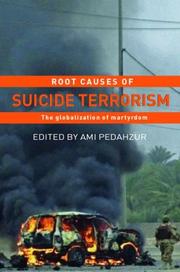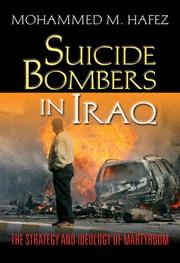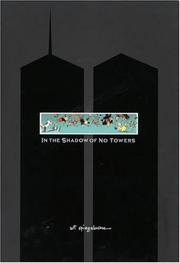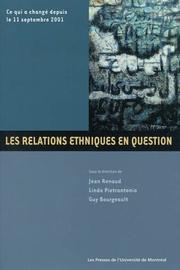| Listing 1 - 10 of 74 | << page >> |
Sort by
|
Book

ISBN: 2362450694 Year: 2017 Publisher: Istanbul : Institut français d’études anatoliennes,
Abstract | Keywords | Export | Availability | Bookmark
 Loading...
Loading...Choose an application
- Reference Manager
- EndNote
- RefWorks (Direct export to RefWorks)
Après les différents attentats survenus en France en 2015, au-delà des réactions officielles convenues ou des réactions sincères de certains groupes sociaux et individus, on a pu constater dans l’opinion turque – du sommet de l’État aux milieux les plus modestes – comme une tolérance, si ce n’est une forme de compréhension, vis-à-vis des motivations supposées des auteurs de ceux-ci. Certaines convergences étranges d’un extrême à l’autre du spectre idéologique, dans la réception de ces événements, traduisent des affinités à la fois dans les modes de représentation de la situation contemporaine et les modes de positionnement face à celle-ci. Ce dossier analyse les réactions turques aux attentats commis en France en 2015 contre Charlie Hebdo et l’Hyper Cacher les 7 et 8 janvier et le 13 novembre à St Denis et dans les 10e et 11e arrondissements de Paris à travers une analyse de la presse et de Twitter. L'objectif est d’identifier en priorité la gamme des réactions les plus dissonantes, de voir quels groupes sociaux et quels terreaux elles touchent, de déceler sur quelles argumentations elles reposent et comment elles peuvent circuler entre la Turquie et les communautés turques et/ou musulmanes d’Europe, et les djihadistes.
International Relations --- Political Science --- relations internationales --- attentats --- djihad --- musulmans
Book
ISBN: 9788282880015 8282880019 Year: 2013 Publisher: Oslo : Flamme,
Abstract | Keywords | Export | Availability | Bookmark
 Loading...
Loading...Choose an application
- Reference Manager
- EndNote
- RefWorks (Direct export to RefWorks)
Massacres --- Bombings --- Oslo et Utøya, Attentats d' (Norvège ; 2011).

ISBN: 0415770297 0415770300 9780415770293 9780415770309 9780203964910 9781135987329 9781135987367 9781135987374 Year: 2006 Publisher: London : Routledge,
Abstract | Keywords | Export | Availability | Bookmark
 Loading...
Loading...Choose an application
- Reference Manager
- EndNote
- RefWorks (Direct export to RefWorks)
Suicide terrorism in its modern form appeared in the 1980s. The first organization to use this strategy was the Shi'ite Hizbollah in Lebanon. Later, it was adopted by many terrorist organizations in the Middle East and Asia. This new study shows how there are at least two reasons to question the central role that is assigned to religion and more specifically Islam when explaining suicide terrorism. First, suicide terrorism is a modern phenomenon, yet Islam is a very old religion. Except for two periods in the 12th and 18th centuries, suicide was never part of Islamist beliefs and behaviors. Actually, Islam clearly forbids suicide. Hence, the argument that Islamic religious beliefs are the main cause of suicide terrorism is inherently dubious. Second, many suicide attacks have been carried out by secular organizations with little connection to fundamentalist Islam: Palestinian Fatah, the Popular Front for the Liberation of Palestine, the Kurdish Workers Party. Moreover, one of the organizations that has employed this strategy devastatingly and regularly is the LTTE (Liberation Tigers of Tamil Elam). Not only are members of this organization not Muslim, most of them are not religious at all. This superb book contains essays by some of the world's leading scholars of terrorism and political violence. It is essential reading for students of terrorism, political science and Middle Eastern politics, and useful to students of social psychology, theology and history.
Suicide bombings --- Suicide bombers --- Terrorism --- Attentats-suicides --- Kamikazes (Attentats-suicides) --- Terrorisme --- Psychology. --- Religious aspects --- Islam. --- Psychologie --- Aspect religieux --- Islam --- Suicide bombings. --- Terrorism.
Book

ISBN: 9782203035171 220303517X Year: 2011 Publisher: Bruxelles Casterman
Abstract | Keywords | Export | Availability | Bookmark
 Loading...
Loading...Choose an application
- Reference Manager
- EndNote
- RefWorks (Direct export to RefWorks)
Ce collectif rassemble des rencontres, des deux côtés de l'Atlantique, d'auteurs concernés par l'évolution des Etats-Unis. Journalistes, écrivains, dessinateurs de BD et de presse, chanteur, échangent leurs points de vue, en utilisant chacun son média de prédilection. Ils travaillent en binômes, s'écrivent, s'appellent, se répondent, afin de donner naissance à un état des lieux pluriel et pertinent.

ISBN: 9781601270047 1601270046 Year: 2007 Publisher: Washington, D.C. United States Institute of Peace Press
Abstract | Keywords | Export | Availability | Bookmark
 Loading...
Loading...Choose an application
- Reference Manager
- EndNote
- RefWorks (Direct export to RefWorks)
"This book: draws extensively on open-source intelligence and papers of record, primary sources from insurgent groups, including online documents and videos, and interviews with U.S. service members who have served in Iraq; examines the history of suicide bombing in Iraq and many other countries, theoretical perspectives on suicide bombing, and the varies factions that compromise the insurgency; and explores the ideology and theology of martyrdom supporting suicide bombers, their national origins and characteristics, and the prospects for a "third generation" of transnational jihadists forged in the crucible of Iraq."--BOOK JACKET.
Islam --- terrorisme --- Polemology --- Iraq --- Suicide bombers --- Suicide bombings --- Terrorism --- Insurgency --- Martyrdom --- Kamikazes (Attentats-suicides) --- Attentats-suicides --- Terrorisme --- Révoltes --- Martyre --- Islam. --- 855.5 Gewapende groeperingen --- 854 Terrorisme --- 855.1 Strategie --- Révoltes --- Bombings --- Suicide --- Bombers (Terrorists) --- Martyrdom (Islam) --- Muslim martyrs

ISBN: 0375423079 9780375423079 Year: 2004 Publisher: New York Pantheon
Abstract | Keywords | Export | Availability | Bookmark
 Loading...
Loading...Choose an application
- Reference Manager
- EndNote
- RefWorks (Direct export to RefWorks)
For Art Spiegelman, the Pulitzer Prize-winning author of Maus, the terrorist attacks of September 11, 2001 were both highly personal and intensely political. In the Shadow of No Towers, his first new book of comics since the groundbreaking Maus, is an account of the events and aftermath of that tragic day. Spiegelman and his family bore witness to the attacks in their lower Manhattan neighborhood: his teenage daughter had started school directly below the towers days earlier, and they had lived in the area for years. But the horrors they survived that morning were only the beginning for Spiegelman, as his anguish was quickly displaced by fury at the U.S. government, which shamelessly co-opted the events for its own preconceived agenda. He responded in the way he knows best. In an oversized, two-page-spread format that echoes the scale of the earliest newspaper comics (which Spiegelman says brought him solace after the attacks), he relates his experience of the national tragedy in drawings and text that convey - with his singular artistry and his characteristic provocation, outrage, and wit - the unfathomable enormity of the event itself, the obvious and insidious effects it had on his life, and the extraordinary, often hidden changes that have been enacted in the name of post-9/11 national security and that have begun to undermine the very foundation of American democracy.
American literature --- graphic novels --- 11 septembre 2001, Attentats du (États-Unis) --- États-Unis --- Politique et gouvernement --- beeldverhalen
Book
ISBN: 2080800841 9782080800848 Year: 2003 Volume: 544 Publisher: Paris: Flammarion,
Abstract | Keywords | Export | Availability | Bookmark
 Loading...
Loading...Choose an application
- Reference Manager
- EndNote
- RefWorks (Direct export to RefWorks)
Martyrdom --- Terrorism --- Suicide bombers. --- Violence --- Martyre --- Terrorisme --- Kamikazes (Attentats-suicides). --- Islam --- Religious aspects --- Islam. --- Aspect religieux --- Politico-religious --- Jihad
Book
ISBN: 9780415962520 0415962528 9780203707494 9781135024666 9781135024642 9781135024659 9780415883986 Year: 2008 Publisher: New York London : Routledge,
Abstract | Keywords | Export | Availability | Bookmark
 Loading...
Loading...Choose an application
- Reference Manager
- EndNote
- RefWorks (Direct export to RefWorks)
Drawing on trauma theory, genre theory, political theory, and theories of postmodernity, space, and temporality, "Literature After 9/11", suggests ways that these often distinct discourses can be recombined and set into dialogue with one another as it explores 9/11's effects on literature and literature's attempts to convey 9/11.
American literature --- September 11 Terrorist Attacks, 2001 --- September 11 Terrorist Attacks, 2001, in literature. --- September 11 Terrorist Attacks, 2001, in art. --- Terrorism in literature. --- Psychic trauma in literature. --- Politics and literature --- Littérature américaine --- Attentats du 11 septembre 2001, Etats-Unis --- Attentats du 11 septembre 2001, Etats-Unis dans la littérature --- Attentats du 11 septembre 2001, Etats-Unis dans l'art --- Terrorisme dans la littérature --- Traumatisme psychique dans la littérature --- Politique et littérature --- History and criticism. --- Influence. --- History --- Histoire et critique --- Influence --- Histoire --- 11 septembre 2001, Attentats du (États-Unis) --- Traumatisme psychique --- Terrorisme --- Dans la littérature --- Dans l'art --- History and criticism --- Littérature américaine --- Attentats du 11 septembre 2001, Etats-Unis dans la littérature --- Terrorisme dans la littérature --- Traumatisme psychique dans la littérature --- Politique et littérature --- Dans la littérature. --- Dans l'art. --- Histoire et critique. --- 11 septembre 2001, Attentats du (États-Unis) --- Dans la littérature.

ISBN: 2760618447 9791036513749 2760623823 276062921X 9782760629219 9782760623828 Year: 2002 Publisher: Presses de l’Université de Montréal
Abstract | Keywords | Export | Availability | Bookmark
 Loading...
Loading...Choose an application
- Reference Manager
- EndNote
- RefWorks (Direct export to RefWorks)
Les attentats du 11 septembre 2001 placent, de façon tragique, les relations ethniques et les rapports sociaux de domination au cœur de la réflexion publique. Cet événement constitue-t-il un moment de rupture radicale, le début d’une ère nouvelle ? Ou, au contraire, ne confirme-t-il pas ce qui était déjà latent ? Les questions qui sont abordées dans ce recueil touchent aussi bien aux jugements trop rapides des médias et de l’opinion publique sur le lien entre ethnie et terrorisme qu’aux lois adoptées à la hâte et aux dangers qui en découlent. Comment évaluer les nouvelles frontières qui se sont dressées sous la couverture d’une nouvelle sécurité nationale ? Le 11 septembre 2001 entraîne des répercussions qu’il ne faut plus ignorer.
Ethnic relations --- September 11 Terrorist Attacks, 2001 --- Islam --- Relations interethniques --- Attentats du 11 septembre 2001, Etats-Unis --- Social aspects --- Public opinion --- Aspect social --- Opinion publique --- Ethnic relations. --- Public opinion. --- Social aspects. --- Québec (Province) --- Relations interethniques. --- Inter-ethnic relations --- Interethnic relations --- Relations among ethnic groups --- Acculturation --- Assimilation (Sociology) --- Ethnic groups --- Ethnology --- Social problems --- Sociology --- Minorities --- Race relations --- Attentats du 11 septembre 2001, États-Unis --- Aspect social. --- Opinion publique. --- relations interetchniques --- attentats --- ethnicité
Book
ISBN: 9780470657928 0470657928 Year: 2011 Volume: *6 Publisher: Chichester Malden Oxford Wiley-Blackwell
Abstract | Keywords | Export | Availability | Bookmark
 Loading...
Loading...Choose an application
- Reference Manager
- EndNote
- RefWorks (Direct export to RefWorks)
After the Fall presents a timely and provocative examination of the impact and implications of 9/11 and the war on terror on American culture and literature. Presents the first detailed interrogation of U.S. writing in a time of crisis Develops a timely and provocative arguement about literature and trauma Relates U.S. writing since 9/11 to crucial social and historical changes in the U.S. and elsewhere Places U.S. writing in the context of the transformed position of the U.S. in a world characterized by political, economic, and military crisis; transnational drift; the resurgence of religious fundamentalism; and the apparent triumph of global capitalism.
Nationalism in literature --- Nationalisme dans la littérature --- Nationalisme in de literatuur --- American literature --- Nationalism in literature. --- September 11 Terrorist Attacks, 2001 --- September 11 Terrorist Attacks, 2001, in literature. --- Littérature américaine --- Attentats du 11 septembre 2001, Etats-Unis --- Attentats du 11 septembre 2001, Etats-Unis dans la littérature --- History and criticism. --- Influence. --- Histoire et critique --- Influence --- 11 septembre 2001, Attentats du (États-Unis) --- English literature --- Agrarians (Group of writers) --- Littérature américaine --- Nationalisme dans la littérature --- Attentats du 11 septembre 2001, Etats-Unis dans la littérature --- 21st century --- History and criticism --- September 11 terrorist attacks, 2001 --- anno 2000-2009 --- anno 2010-2019 --- Nationalisme --- 21e siècle --- Dans la littérature
| Listing 1 - 10 of 74 | << page >> |
Sort by
|

 Search
Search Feedback
Feedback About UniCat
About UniCat  Help
Help News
News